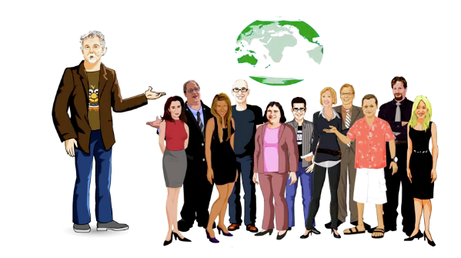
Most of these groups have been able to cultivate some sort of Internet presence. I'm most interested in taking a look today at that last group: the homeless.
Mark Horvath (on Twitter, @hardlynormal), was homeless fifteen years ago on the streets of Hollywood. He managed to navigate the system and, with odds stacked against him (as is the case with the majority of homeless people) worked his way toward a three-bedroom home. That was fine for a little while, but the economy crashed and he neared homelessness again.
He now owns the website We Are Visible, a resource to help homeless people empower themselves through social media (Read a full history and better description of the site and Horvath HERE). In the landscape of homelessness today, it may seem surprising, but many people without homes have access to the Internet...or even have their own laptops as one of their very few possessions. We Are Visible features very step-by-step tutorials about how to set up and use an email account ("It's simply the way the world communicates"), how to use Facebook to promote interconnectivity of the homeless community, how to set up a Wordpress blog, or what the deal is with Twitter ("Within the circle of 'tweeters' you'll create, people will be talking about what matters to you").
On the "Why Social Media" page, a user named @beckyblanton does the best job at explaining the importance of social media for the homeless community. She explains, "Nothing is more powerful than our stories. Whether it's story told in pictures, or story told in words, stories change people. Social media and blogs are how and where we tell our stories. Stories connect us to the world. No matter how rich, how poor, how young, how powerful or how weak, stories change us. Homeless people have one story - or so people think. No one bothers to stop and ask the homeless for their story or even expects to see a story other than, 'I'm broke, addicted, mentally ill, angry, hurt and dangerous.'It's up to you to add to, or go beyond that negative story. If you ever wanted the keys to life, to possibility, to freedom, social media and a blog are those keys. Get them. Use them. They can change your world."
Because God knows the mainstream media's not going to change the world for you.
A version of this piece was cross-posted on the Advocacy Blog for Ithaca College Habitat for Humanity, for which I serve as the chair of Education & Advocacy.
